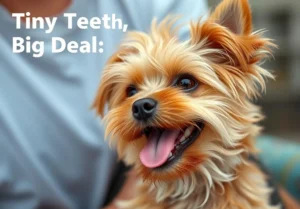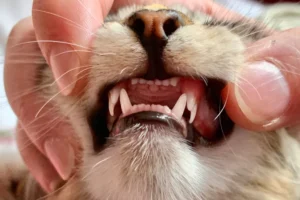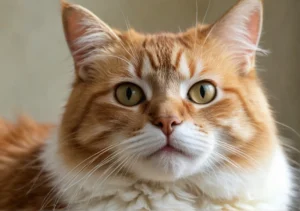Does your cat seem to be drooling more than usual? Find out why this might be happening and how to address it in the informative blog post below.
Dental Issues
If you’re wondering why your fluffy feline friend is drooling like a leaky faucet, dental issues might be the culprit. Just like us, cats can experience dental problems that lead to excessive drooling. Poor dental hygiene, gum disease, tooth decay, or oral infections can all cause your cat to slobber more than usual.
So, how can you tell if dental issues are to blame for your cat’s drooling dilemma? Keep an eye out for bad breath, red or swollen gums, difficulty chewing, or avoiding hard food. If you notice any of these signs, it’s best to schedule a visit to the vet for a dental check-up. Remember, a healthy mouth means a happy cat!
Foreign Objects
Picture this: your curious kitty gets a little too adventurous and ends up with a foreign object wedged in their mouth. It’s not a pleasant scenario, but it happens more often than you think. Grass blades, string, rubber bands, or even small toys can get stuck in your cat’s teeth or throat, causing them to drool excessively.
If you suspect that a foreign object is causing your cat’s drooling, don’t panic. Check inside their mouth for any visible obstructions, but be gentle to avoid further discomfort. If you can’t see anything, it’s time to visit the vet for a closer look. Remember, a prompt response can prevent any serious complications down the road.
Oral Infections
If you’re wondering why your cat is drooling excessively, one possible reason could be oral infections. Common oral infections in cats, such as gingivitis or stomatitis, can lead to discomfort and drooling. These infections are often caused by a buildup of plaque and tartar on your cat’s teeth, which can lead to inflammation and infection in the gums. If left untreated, these infections can not only cause drooling but also lead to more serious health issues for your feline friend.
To address oral infections in cats, it’s essential to consult with your veterinarian. They may recommend a dental cleaning to remove plaque and tartar buildup, as well as antibiotics to treat the infection. In some cases, extractions of severely infected teeth may be necessary to alleviate your cat’s discomfort and resolve the drooling issue.
Remember, good dental hygiene is essential for your cat’s overall health. Regular brushing and dental check-ups can help prevent oral infections and keep your cat’s pearly whites healthy and strong.
Poisoning
If your cat is drooling excessively, poisoning could be a potential culprit. Cats are curious creatures and may ingest toxic substances, such as certain plants, human medications, or household chemicals, which can lead to drooling as a symptom of poisoning. Some common toxic substances to watch out for include lilies, antifreeze, and certain essential oils.
If you suspect that your cat has ingested a poisonous substance, it’s crucial to act quickly. Contact your veterinarian or an emergency pet poison hotline immediately for guidance on how to proceed. Keep any packaging or remnants of the suspected toxic substance for identification purposes.
In cases of poisoning, time is of the essence. The sooner you seek help, the better the chances of a positive outcome for your feline companion. Always be mindful of potential hazards in your home and take precautionary measures to keep your cat safe from toxic substances. And remember, prevention is key when it comes to protecting your furry friend from accidental poisoning.
Nausea and Gastrointestinal Problems
If you’re noticing your cat drooling excessively, it could be a sign of nausea or gastrointestinal issues. Cats may drool when they feel nauseous, similar to how we may salivate before vomiting. This could be caused by various factors such as ingesting something toxic, having an upset stomach, or suffering from a more serious condition. If your cat is also showing signs like reduced appetite, lethargy, or vomiting, it’s crucial to seek veterinary attention promptly. A vet can examine your cat, run tests if necessary, and provide appropriate treatment to address the underlying issue causing the drooling.
Heat Stroke
It’s essential to be aware of the connection between heat stroke and drooling in cats, especially during hot weather. Cats can’t cool down as efficiently as humans, making them more prone to heat-related illnesses. When a cat overheats, they may pant excessively to regulate their body temperature, leading to drooling as well. To prevent heat stroke, ensure your cat has access to cool areas, fresh water, and never leave them in a hot car or under direct sunlight for long periods. If you suspect your cat is suffering from heat stroke, immediately move them to a cool place, offer water, and contact your vet for further guidance.
Additional Tip:
- Avoid Hot Surfaces: During hot weather, keep your cat away from hot surfaces like asphalt or concrete, as these can contribute to heat retention and increase the risk of heat stroke.
Neurological Issues
If you notice your cat drooling excessively, it could be a sign of underlying neurological issues. Conditions like seizures, nerve damage, or tumors can all lead to increased drooling in cats. If your furball is experiencing drooling along with any other concerning symptoms such as disorientation, weakness, or changes in behavior, it’s crucial to schedule a visit to the veterinarian promptly. Your vet can conduct a thorough examination to determine the root cause of the drooling and provide appropriate treatment to help your cat feel better.
Breed Predispositions
Did you know that some cat breeds are more prone to drooling than others? Breeds such as Persians, Maine Coons, and Siamese cats are known to be more predisposed to excessive drooling due to their genetics. This behavior can be traced back to the anatomy of their mouths and jaws, which may affect their saliva production. If you have a cat of one of these breeds and notice increased drooling, don’t worry – it’s usually nothing to be alarmed about. However, if the drooling is accompanied by other symptoms like bad breath or difficulty eating, it’s best to consult with your vet to rule out any underlying health issues.
Additional Insight:
- Regular dental care can help prevent drooling in cats prone to dental issues. Brushing your cat’s teeth regularly and providing dental treats or toys can promote good oral hygiene and reduce the risk of excessive drooling.
Fun Fact: Salivary Glands
Did you know that cats have different salivary glands than humans? These unique glands play a crucial role in your feline friend’s overall health. While humans have three pairs of salivary glands, cats have five pairs! These glands are responsible for producing saliva, which aids in digestion and helps keep their mouths clean. Interestingly, cats’ saliva contains enzymes that are designed to break down prey more efficiently, owing to their carnivorous nature.
Beyond just aiding in digestion, a cat’s saliva also helps them regulate their body temperature. When your furry companion is hot, they’ll groom themselves, spreading saliva on their fur. As the saliva evaporates, it cools them down, acting as a natural air conditioner.
In some cases, excessive drooling in cats could signal underlying health issues. Factors such as dental problems, foreign objects stuck in the mouth, or even toxins can cause increased drooling. If you notice your cat drooling more than usual, it’s best to consult your vet for a thorough examination.
Remember, while a bit of drooling is normal, persistent drooling that seems excessive should not be ignored. Your cat’s health and comfort are a top priority, so always seek professional guidance if you have concerns about their drooling habits.
Additional Insight:
- Emotional distress or anxiety can also lead to excessive drooling in cats. Just like humans, our feline friends can experience stress that manifests in various ways, including increased salivation. If you suspect your cat is feeling anxious, try to identify and address the source of their stress to improve their well-being.
Alex, a passionate animal lover, has experience in training and understanding animal behavior. As a proud pet parent to two dogs and three cats, he founded AnimalReport.net to share insights from animal experts and expand his knowledge of the animal kingdom.




